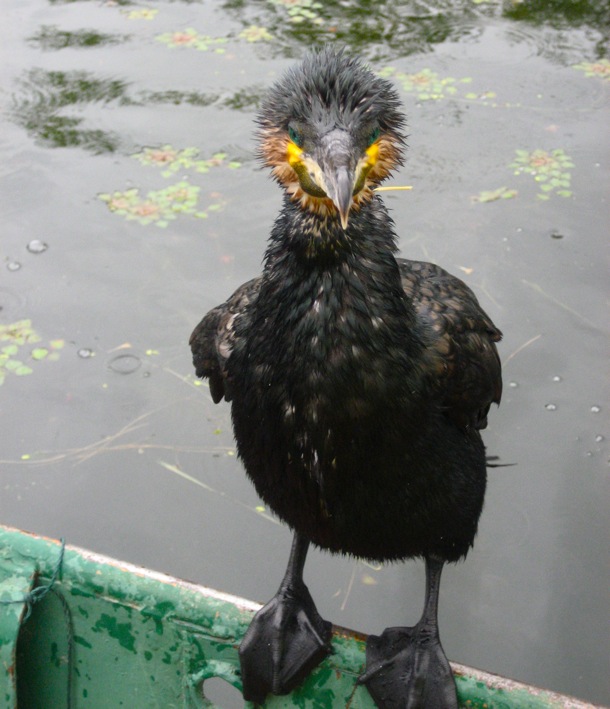On the morning of my 26th birthday, I awoke at 6 AM in a bizarre wonderland reminiscent of Las Vegas. Neon lights streaming through the window. The steady boom of a bass throbbing in the club below. A rooster crowing. Wait—what? A rooster crowing? This wasn’t Nevada anymore. This was Kunming, China—the capital of Yunnan Province.
Known as the Spring Province, Yunnan lays in China’s Southwest corner, bordered by Tibet, Myanmar, Vietnam, and Laos. A popular destination for Chinese tourists, Yunnan has steadily crept up on the radar of backpackers as an adventurous, cultural, and cheap journey.
Don’t think you’d survive as a single lady traveling China? Think again! We were three girls with 12 days to travel and zero ability to speak Mandarin, and we did more than just survive. Below are a few suggestions for having a great trip through this distant corner of the world.
Walk Lijiang
The northern city of Lijiang has rebounded beautifully since its near-destruction in a 7.0 magnitude earthquake in 1996. The Old Town is a maze of serpentine streets and back alleyways, where you can find a purveyor selling yak meat next to a shopkeeper crafting gorgeous leather goods. Make sure you visit Black Dragon Pool Park for a gorgeous view and pop into the Lijiang Dongba Cultural Museum for an introduction to Naxi culture, which boasts the only living hieroglyphic language in the world. For a nightcap, stop by Stone the Crows for a rooftop view of Lijiang twinkling in the moonlight.
Hike Tiger Leaping Gorge
This two-day hike above the Yangtze River is not for the faint of heart. Begin your hike at the Naxi Guesthouse, where donkeys will be there to help you ascend the first—and hardest—leg of the journey, with 28 switchbacks standing between you and the trail. Even if you (like us) think you want to tough it and walk, the donkeys’ owners are persistent and will follow you up. And that actually happened to work out well for us—my friend threw the towel in halfway up and enjoyed her relaxing ride from the burro’s back.
Bring plenty of water and a granola bar, and spend time enjoying the view once you complete the famed “28 Bends,” as the rest of the trail is fairly flat. Spend your first night at the Teahorse Guesthouse, enjoying banana pancakes and card games with other adventure seekers. On day two, you’ll encounter an awesome waterfall before arriving at Tina’s Guesthouse, where the journey ends. Make sure you hike down to the river from Tina’s so you can see the rock where—as legend has it—a tiger leapt from one side of the gorge to the other.
Visit Dr. Ho in Baisha
Baisha is a small agricultural community about 30 minutes outside of Lijiang by bike. A Taoist physician, Dr. Ho runs the “Clinic of Chinese Herbs in Jade Dragon Mountains of Lijiang.” His office is a bit difficult to find, but you’ll eventually see it on the left side of the path. Greet him with a smile and endure his 15-minute speech of how he is “the most honorable man.”
Once this 88-year old legend has shown you the 10th news article about him, he will take you into a back room stocked with red tubs, each filled with different teas and herbs grown locally. You’ll leave with a wonderful brick of tea mixed perfectly for your condition (plus a note to customs declaring what it is so you don’t get arrested)—all for free (though donations are accepted). Even if you aren’t sick, I recommend visiting Dr. Ho just for the experience of meeting a traditional Chinese medicine man. Just make sure you load up on the bug spray before you depart Lijiang—you’ll be biking through agricultural fields, and combating bite after bite isn’t the best way to spend a leisurely ride.
Go Fish in Dali
Erhai Lake is the center for cormorant fishermen in Dali. The cormorant birds are trained to dive into the water and swallow fish, but the fishermen tie their necks so that the fish can't be swallowed. The cormorants then return to the boat and regurgitate the fish for the fisherman to collect. Feel free to ask the fishermen to let you hold the birds—and even if you don't ask, they’ll practically shove them on you! To get there, rent a bike in town and head towards Caicun Wharf. The 20- to 30-minute bike ride will take you through beautiful rice paddies and gorgeous Yunnan countryside.
Taste Tea
You’re guaranteed delicious, unique, and healing teas nearly anywhere you go in Yunnan province, which is strategically situated on the ancient Tea & Horse Road. Most notable to try is the Pu’er tea, which is a dark tea known for its many health benefits. A personal favorite of mine is the jasmine tea with honey—it has beautiful floral and earthy aroma with a supple and sweet taste. Make sure you visit a teashop to see how the leaves are prepared in traditional Yunnan culture.
Places We Missed
During our trip, we only traveled north of Kunming to Lijiang. There are plenty of other sites to see in Yunnan, including the rainforests of Xixuanbanna, the tea fields of Pu’er, the karst formations of Shilin’s Stone Forest, and the fabled Shangri-La of Zhongdian. When I return, these are at the top of my list.
Logistics
Sound like your kind of trip? Here are my tips for planning your own:
To get to Yunnan, I would recommend flying into the capital, Kunming. A recent search on Ctrip.com found one-way flights to Kunming for the end of June from $160 (Beijing), $153 (Shanghai), and $265 (Bangkok on China Eastern).
To get around the province, we took the bus and found it a great experience. Just ask about the bus at your hostel or hotel and make sure they write down the information in Chinese characters so you can show your taxi driver. Most buses in Yunnan have assigned seating, so if you’re traveling with someone, make sure you buy your tickets together. And if you take an overnight sleeper bus between Lijiang and Kunming, be prepared to bunk up. I was assigned the king size mattress in the back of the bus with a lovely elderly Chinese couple. Awkward? Yes. A once-in-a-lifetime experience? Absolutely.
And finally, the items I would say not to forget to pack:



